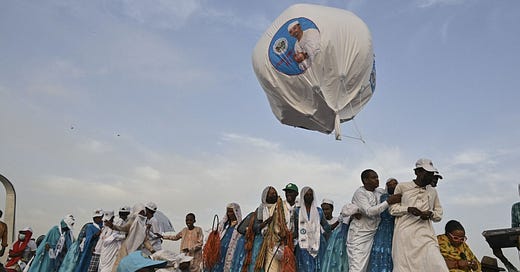Chad Presidential Elections: Last-man-standing
By Isaac Sim and Wong Rui Yik
Image Source: Agence France-Presse
Results:
Presidency: Mahamat Déby (MPS)—notably after murdering his main opposition candidate and intimidating 3 more to back out of the election.
The past 3 years of Chadian governance has seen an inexorable march of democratic backsliding plunge the nation into further authoritarianism. After long ruling president Idris Deby was killed in 2021 by a militant insurgency, his son, Mahamat Deby would seize power in a quasi-coup. Under the banner of preserving stability, the national assembly was dissolved, and a transitional military council consisting of Mahamat and loyalist generals took control of Chad, promising to hold elections after 18 months.
However, in August 2022, the council would postpone the election dates till April 2024, more than a year after the originally promised October 2022 deadline. The act would incur massive backlash and protests from opposition parties and people alike, while receiving criticism from the international community and African Union.
History Quiz!
Q: How does a modern authoritarian strongman leader respond to demonstrations for democracy?
A: If you guessed “Violent crackdowns and internet blackouts”, you’re right!
More than 100 people were massacred in a single day, with over 600 arrests being carried out in the coming days. Mahamat Deby’s government would use the response as proof of a state of “instability and insurrection” in Chad. Over the next months, he would go on to suspend major opposition parties, and consolidate his rule through increasingly Draconian policies.
Deby’s path of dust and blood would culminate in the killing of his cousin, and main political rival Yaya Dillo Djérou a mere 2 months before the election; which spurred 3 other major candidates to withdraw out of fear (Africanews 2024). With little other opposition to stand in his way, Deby would end up winning the 2024 elections with a comfortable 60% of the vote.
To Deby, democracy is not a question of the people’s will. Democracy is a competition to be the last-man-standing.
When democracy becomes a life-and-death challenge for the incumbent, the sparks of authoritarianism naturally arise. Chad is but a microcosm of a wider plague affecting the Western Sahel, standing together in a backdrop of a rise of authoritarianism—with an increasing number of coups and insurgencies. In a sense, Deby is right: democracy cannot just be about the will of the people. The assurance of stability over the process of democracy must be present to prevent a death-spiral back to authoritarianism for aspiring democracies.






